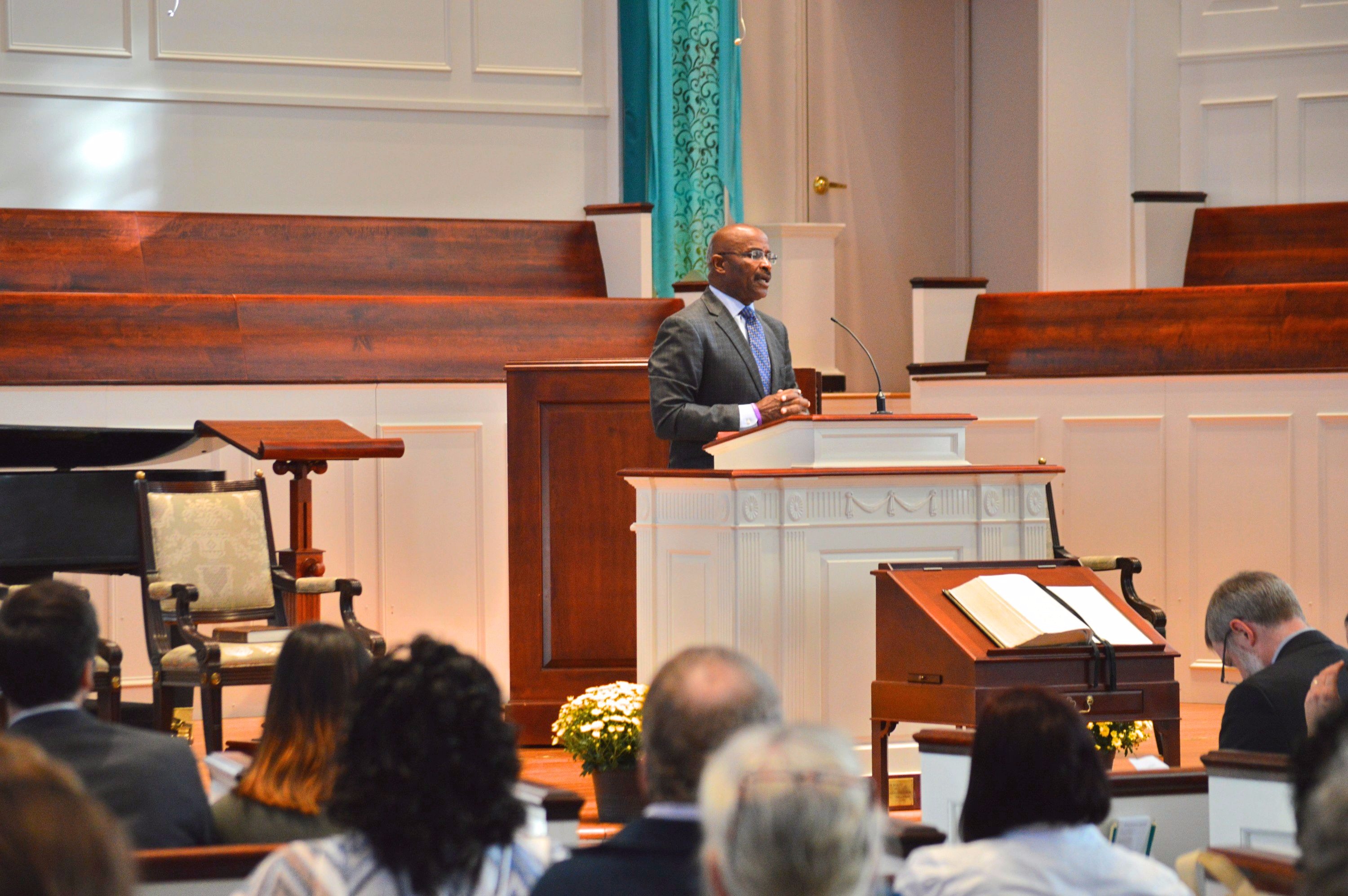Written by Council intern Katie Withers. Katie is a Master of Social Work student at North Carolina State University.
Two weeks ago, Partners in Health and Wholeness, a program of the North Carolina Council of Churches, hosted its bi-annual Faith & Health Summit. The purpose of the event was to increase awareness about health disparities across the state. A wide range of keynote speakers and workshop leaders presented information ranging from the opioid crisis, healthy eating, healthy aging, and the importance of self-care.
The summit began with morning worship, highlighted by the preaching of the Reverend Richard Joyner from Conetoe Baptist Church and the founder of the Conetoe Family Life Center. Through the lens of scripture, he emphasized the importance of relationship: with God, neighbor, and creation. A particularly important point for me was the advice to, “go back to the place that hurts the most.” To illustrate this idea, he shared his own story of growing up as the son of a sharecropper, frustrated with the work and hampered by poverty, all the while absorbing his father’s wisdom on how to care for the land and how to find pride in the work. Now, Joyner’s life work, along with preaching the Gospel, is to use the land as a way to heal relationships and offer hope. He does this by promoting entrepreneurial leadership among the youth and healthy eating for all.
I certainly relate personally to Joyner’s story because I, too, grew up in rural North Carolina on a family farm. I lived with my aunt and uncle who were older and needed help with chores such as feeding the hogs, picking beans, and digging potatoes. Needless to say, I did not enjoy those chores.
As I have grown older, like Joyner, I am able to appreciate the fruits of their labor and mine. I now understand why it is important to rise early and do those tasks I once despised. Now, I take every available opportunity to go home, work the garden, and visit the livestock on the farm. Now I see how important it is to know the source of our food and what a privilege it is to be able to provide one’s own food. Like Joyner, I know the land to be a source of healing for me and others.

